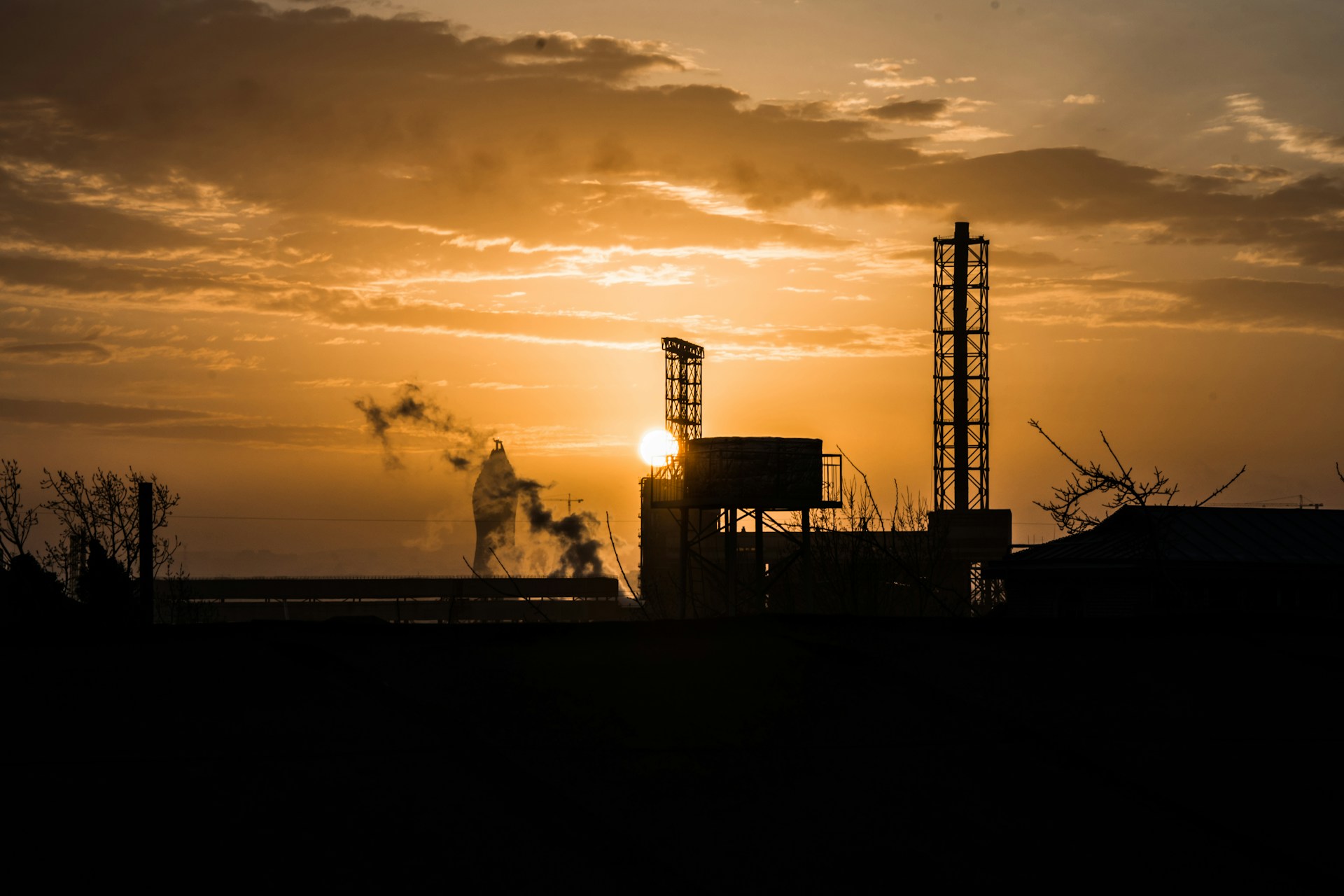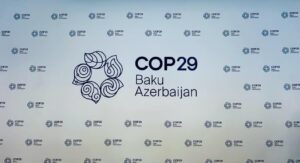Read the paper “Energy relations between Italy and Azerbaijan: risks of gas dependency in the energy transition”
Azerbaijan COP29’s Presidency has a key role to play in relaunching the ambition of the commitments signed at COP28 in Dubai, including tripling renewable energy capacity and doubling energy efficiency by 2030, but above all, it needs to be decisive in giving a concrete follow-up to the decision to transition away from fossil fuels in energy systems in a fair, orderly and equitable manner. However, the priorities on the agenda outlined by Baku do not include elements to advance the phase out of fossil fuels.
Azerbaijan can be defined as a ‘petrostate’, whose economic development is strongly linked to oil and gas exports. Today, fossil fuels account for more than 90% of export earnings, 60% of government revenue and 35% of gross domestic product (GDP). 95% of Azerbaijan’s exports are made up of oil and gas, and EU countries – primarily Italy – account for more than half of the country’s total exports. To support its economy, Azerbaijan is increasingly selling its gas to European countries, including Italy, by establishing political and economic relations that hinge on energy cooperation. But while bilateral relations between the EU and Azerbaijan have mostly stuck to a consolidated framework focused on energy and trade, leaving aside any prospect of political association, over the past four years Italian-Azerbaijani relations have strengthened beyond the energy dimension, favouring the creation of a multidimensional strategic partnership.
The focus of the Rome-Baku axis is fossil energy. Azerbaijan exports 57% of its oil to Italy, the latter being Azerbaijan’s top oil destination market. By the same token, Azerbaijan is among the top oil suppliers to Italy, averaging about 15% of total imports. Similarly, the country has proved to be an essential partner within Italy’s strategy of diversification from Russian gas. As of today, Baku exports around 20% of its gas production to Italy. Azerbaijan is Italy’s second largest gas supplier after Algeria, accounting for about 16% of Italy’s total gas imports. The desire to expand energy cooperation between the two countries passes through the intention to double the Trans Adriatic Pipeline (TAP) gas pipeline from a capacity of 10 to 20 billion cubic metres per year (bcm/y). This project, which is at the heart of the memorandum of understanding (MoU) signed in 2022 between the European Commission and Baku, is of particular importance both from an energy and political point of view.
Strengthening the partnership was, in fact, a key political element in light of the Azerbaijani-Armenian conflict. The position that Italy maintained on the conflict between Azerbaijan and Armenia over Nagorno-Karabakh is the diplomatic outcome of the strengthening of relations between Rome and Baku on the basis of economic interests, especially of energy nature.
This study highlights the economic and political risks for Italy and Azerbaijan related to a further intensification of gas dependence. Indeed, on the one hand, the analysis of European gas market fundamentals does not reveal stable demand conditions that would justify new infrastructure investments and, on the other hand, a limited availability of Azerbaijani gas supply volume.
As far as gas demand is concerned, in spite of Baku’s importance in the process of diversification of gas supplies from Russia, it has been shown that the increase in TAP’s transport capacity is not justified by scenarios that see Italy and Europe pursuing a path consistent with national and European climate objectives to 2030, as well as with the international commitments of the Paris Agreement. The scenarios included in ‘The State of Gas’, and specifically the Fit-for-55 decarbonisation scenario, built on a gas demand as given by Italy’ s National Energy and Climate Plan (NECP), show how the existing infrastructure[1] is already able to cover the required volumes of consumption and even ensure Italy’s export volume of over 7 billion cubic metres per year.
As far as supply is concerned, according to a study by the Oxford Institute for Energy Studies (OIES), assuming the lowest plausible level of Azerbaijani gas production[2] and faced with a domestic demand that remains stable, by 2030 there would be no residual volumes of gas available for export to Turkey and European partners. Assuming the maximum plausible level of production, a maximum of 15 bcm/y of incremental gas could be available by 2030 in addition to the volumes already contracted. This estimate could decrease again by 2035 due to the natural decline of the field.
The guarantee of sufficient and stable European demand for gas is a necessary condition for financial support for the development of new fields that would be needed to fuel the expansion of export infrastructure. Such guarantees, however, are not compatible with decarbonisation scenarios of the policies already in place. The market, indeed, already shows little interest in increasing supplies. The non-renewal of the contract for gas supplies to Turkey from the Shah Deniz field and the binding requests reached of only 1.2 bcm/y compared to the 10 bcm/y foreseen in the agreements between Italy and Azerbaijan are in fact a reconfirmation that the current market conditions are not adequate to support the investments needed for the development of new fields and the upgrading of infrastructure.
Betting on gas based on a European market with a gas demand set to decline over the next five years risks exposing Italy and Azerbaijan to stranded assets. According to the International Energy Agency (IEA), if we are to remain within a trajectory that achieves net-zero by 2050 and limits the global average temperature rise to 1.5°C, there is no more room for new fossil fuel exploration and production. With a reduction in global demand for oil and gas resulting from a moderate pace transition, which reflects the Announced Pledges Scenario (APS), 50% of Baku’s revenues from oil and gas sales would be at risk. Consequently, given Azerbaijani economy’s heavy reliance on oil revenues, 70% of Azerbaijan’s public revenues would be at risk if no risk mitigation and reform strategy supporting a process of economic diversification were to be implemented.
The priority for Azerbaijan within a context such as COP should not be to increase its fossil fuel export contracts, which thus represent a financial risk, but, within broader partnership agreements, to build a pathway that supports the country’s financial stability in a context of progressive decarbonisation of global energy markets.
COP is therefore an opportunity for Azerbaijan to openly acknowledge the challenges associated with its fossil fuel economy and, together with the other Troika members – the United Arab Emirates and Brazil – outline a viable path towards decarbonisation for producing countries, fostering a shared climate ambition. The nature of a fossil fuel-producing country and its non-alignment in defined geopolitical blocs could engage other hydrocarbon-rich nations in a constructive debate on fossil fuel transition dilemmas in a way that has never been achieved before at COP.
Given the great importance of Italy for the Azerbaijani market – and vice versa – it is essential for Italy to take the following points into consideration when deepening political and economic relations with Azerbaijan:
- Plans to increase gas exports from Azerbaijan to Italy are part of a framework where betting on gas exposes to many risks. If Italy wants to pursue a path consistent with national and European 2030 climate goals as well as the international commitments of the Paris Agreement, it is not necessary to invest in new gas capacity. Betting on gas, therefore, means risking generating stranded assets, i.e. investments that will be lost as they are no longer profitable. In this regard, the investments of the main companies involved would also put public capital at risk.
- Deepening an already gas-focused relationship without foreseeing measures to support economic diversification means condemning the country to a future of uncertain and risky revenues, with repercussions for the exporter’s budgetary sustainability and economic health.
- Italy, as Baku’s first trading partner, should promote measures that can support the process of economic diversification in Azerbaijan, for example through the activation of new forms of economic and industrial diplomacy to identify zero-emission projects that can foster the development of alternative non-oil sectors and long-term planning.
Read the paper here
Photo by Orkhan Farmanli
NOTES
[1] The existing infrastructure considers the regasification terminal in Ravenna but not the one in Piombino (only authorised until 2026)
[2] Where ‘low’ estimates indicate a more cautious view of the rate at which new fields will come on stream and ‘high’ estimates are given based on the assumption that the most optimistic forecasts will be realised, such as a field coming on stream and reaching the production plateau in the years under consideration





